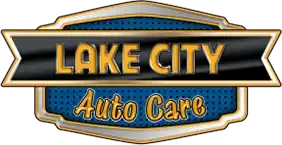What To Do When Your Transmission Is Overheating
Nearly 90% of all preventable transmission catastrophes are due to a lack of attention to and overheating transmission. The important word here is preventable. Yes, this is a serious issue that you need to address immediately, but there’s no need to panic. Let’s dive into some of the mechanics of what is going on with your vehicle so that you can hire the most qualified person to address your overheating transmission.
Why is my transmission suddenly overheating?
Unlike oil, transmission fluid does not “burn off” so if you are overheating there is most likely an issue somewhere in your lubrication system that needs to be addressed…but maybe not. The top five main reasons why your transmission could be overheating are:
- Hot Weather
- Lots of stop & go traffic
- Vehicle tow overload (includes getting caught in the snow)
- A leak or break somewhere in the transmission lubrication system
- Neglect (failure to service at 50K miles for light driving or 25K miles for heavy-duty & towing)

Older vehicles tend to be more susceptible to overheating/overload. If it happens only once, your problem might be situational (hot weather, stop & go traffic, etc.) but if it happens again you should be very concerned and get help right away. Servicing your transmission regularly is essential for keeping things running smoothly.
What’s happening inside of my car when my transmission is overheating?
Push your palms together and twist your hands back and forth in opposite directions while increasing the pressure. As you increase the pressure, friction creates heat and it becomes harder to twist. This is what’s going on inside your car’s transmission while you’re driving along. The lubrication system in your transmission is intended to…well, lubricate these areas of friction so that this is never a problem.
When your transmission lubricating fluid is scarce temperatures start to rise. This breaks down the fluid inside your transmission even further creating more friction…but instead of your palms (which are relatively forgiving), pieces of metal are scraping together, seals are breaking and many components are approaching devastation.

What your transmission service indicator means (specifically):
A normal “healthy” lubricated transmission operates at or below 175 degrees; anything higher than this breaks down your transmission fluid. Now, when the light comes on indicating that your transmission is overheating, it means that your vehicle is functioning at 250 degrees, which is considered an “extremely high” temperature.
At 270 degrees and above, you have a catastrophic situation on your hands so your car’s manufacturers installed a warning to let you know that you can’t wait any more. At 270 degrees your transmission fluid completely breaks down and your transmission can seize up. This can be disastrous for you physically and financially so the goal is to never get there.
This can be a $50 repair (cost of a professional evaluation) or a $6,000 repair depending on whether you take action now or later. A transmission repair shop will check the codes, check the fluid, and determine what needs to be done.
Sometimes when it’s super hot outside, weather conditions will deteriorate the effectiveness of your lubricant. Your issue could simply be hot weather. Either way, when you fail to take action on your blinking transmission service indicator it’s like having $3000 sitting on the roulette table. The odds are stacked against you so, I inquire — when it comes to the transmission of your vehicle are you a betting man/woman? Let’s hope not.

What to do when your transmission is overheating:
- Stop driving immediately and let your transmission cool down.
- Make a note of what you were doing, where you are, what’s happening (noises, etc.)
- After cooling down, start back up & gingerly continue on your way.
If the temperature rises again (if possible) try reducing the load on your vehicle or have a tow truck take you to a local transmission repair shop. Towing may prevent catastrophic damage and save you hundreds (or thousands) of dollars.
Can I take my car to a mechanic or do I need to see a transmission specialist?
When a shop services transmissions day after day, they get to know how to service them and how to repair them because they replace them many times a day. Most general shops may only see one or two transmissions a month. General shops just can’t be experts because of their lack of experience. It’s like going to see a doctor for an eye exam…sure, they can do it but doesn’t it make more sense to see an eye doctor?
Sometimes, too, general shops may misdiagnose something as catastrophic, when a much smaller repair or service was all that was needed. Don’t chance it…and why would you? The technicians at Lake City Auto Care have the expertise to repair your transmission and get you back on the road.
If you’re having transmission troubles, our friendly & helpful specialists can help put your mind at ease. Give us a call or send us a quick message so we can help you navigate your transmission concerns before they become a crisis.
North Idaho's Best Warranty
We stand behind our work 100%. That's why we offer a five-year, 50,000-mile warranty on all services and repairs. You can rest assured that when you bring your vehicle to us, we've got you covered no matter what happens down the road.
Appointments (208)-856-8336
